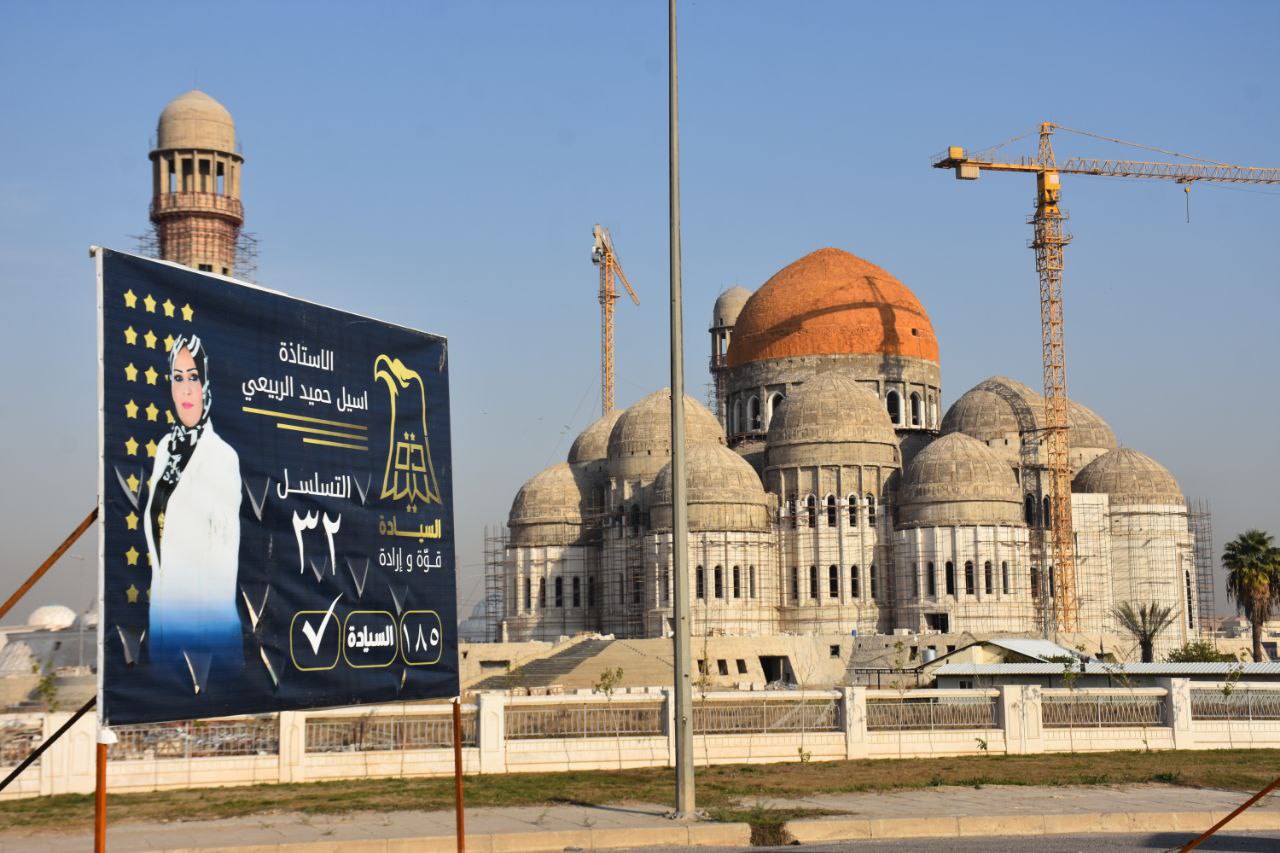The Sunni Muslims are competing to win seats in the Nineveh Provincial Council with more than 10 different lists and alliances, some of which are composed of new forces on the scene. As for the Shiites, although they participate in a strong alliance, Al-Hadbaa, which is a major component of the current Iraqi government, they intend to join the local government through a Shiite-Sunni alliance.
There is anticipation as to who will be the winner of the provincial council elections and who will be able to form a local government that will manage the affairs of the province for the next four years. These are the first elections of this kind to be held in the governorate since its recovery from the grip of the extremist militants of the Islamic State of Iraq and Syria ISIS.
According to statistics from the Nineveh Office of the Independent High Electoral Commission IHEC, 12 parties, 10 alliances, and 15 individual candidates are running in the elections, which are scheduled to take place on December 18 in Iraq, except the Iraqi Kurdistan Region Iraqi, to win 29 seats in the Nineveh Provincial Council.
Sunnis: a struggle between new and old forces
According to the Commission's statistics, Sunni Arabs, who are expected to win the majority of seats in the Provincial Council, participate with more than 10 different lists and alliances and approximately 450 candidates, and this dispersion is seen as one of the weaknesses of the Sunni Arab component.
Some of the Sunni forces are participating for the first time in the elections, which raises the fear of the forces that have been on the scene for two decades, had influence in the local government, and want to regain the same role and influence.
National Resolution (Hasim), National Progress (Taqadum), Determination (Azim), Civil Values, and Conscience (Dhamir) are among the most prominent Sunni Arab alliances in Nineveh. The most prominent participants as parties are Sovereignty, Nineveh for its People, the National Renewal Party, and the New Iraq Rally, along with several other parties and alliances.
Hasim Alliance
The United (Mutahidun) Party and the Hasim Movement for Reform are the two main components of the National Hasim Alliance.
These two parties have been tried before and had a role and influence in the Iraqi government and local government institutions in Nineveh.
The United Party is led by the former Speaker of the Iraqi Parliament, Osama Al-Nujaifi, and the coalition’s first candidate is a nephew of Al-Nujaifi.
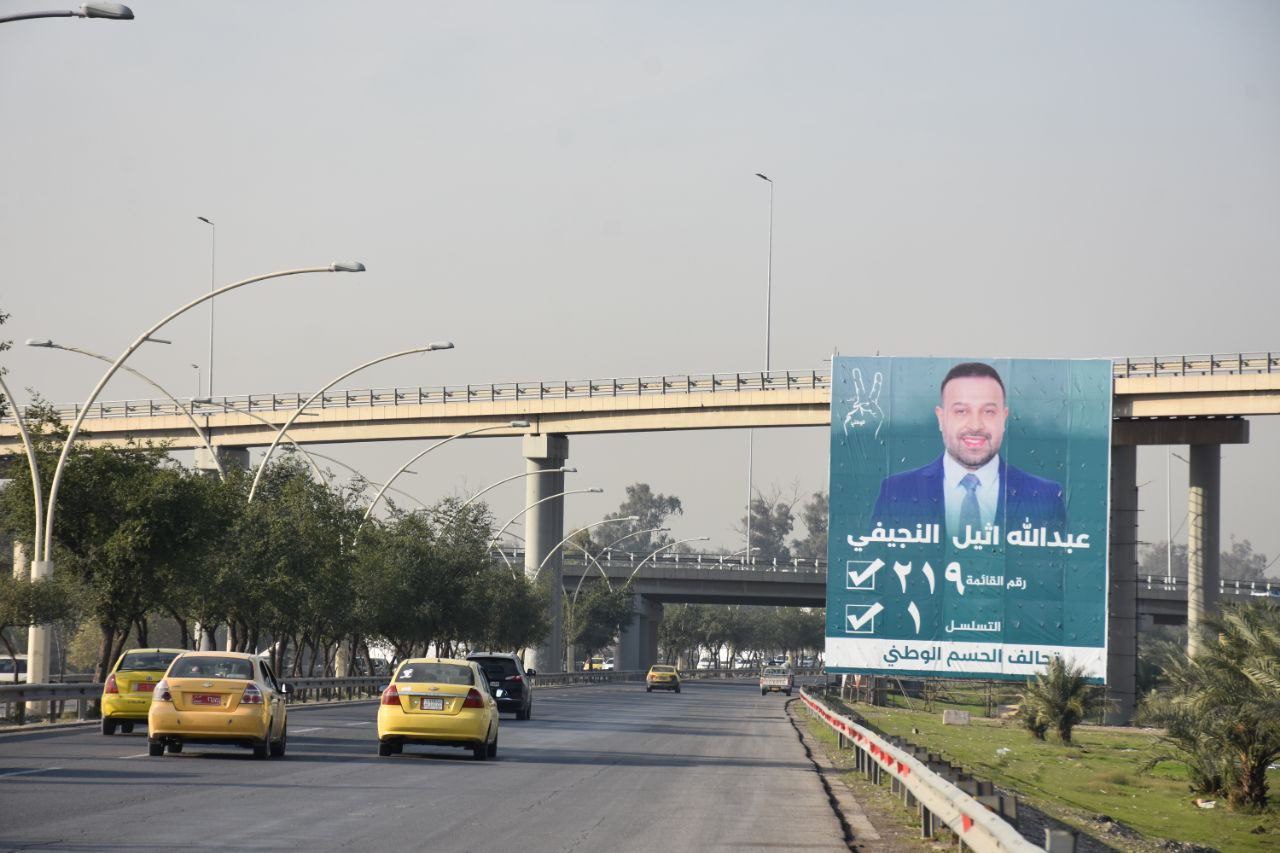
Until before the fall of Mosul in June 2014, the position of governor and the majority of the provincial council went to the Mutahidoon Party. Atheel al-Nujaifi, brother of Osama al-Nujaifi, was the governor of Nineveh, but following the control of Mosul and large swathes of Iraq BY ISIS and several other files, he was excluded from the position.
As for the Hasim Reform Movement, it is headed by the Iraqi Minister of Defense, Thabet Muhammad Al-Abbasi. The movement won three seats in the previous parliamentary elections.
The coalition, with its previous experiences, seeks to restore its role and position, but the fall of Mosul during the ISIS war may be one of the coalition’s weak points, in addition to some files that were raised about its leaders, especially the Nujaifi family.
Researches has showon that reconstruction of the war-torn Nineveh province requires over $80 billion budget, a matter not priority to Iraqi authorities facing political and economic crisis, following the corona virus pandemic.
In August 2014, the so-called Islamic State extremist group ISIS conquered second largest city of Mosul, center of Nineveh Northern Province. After three years, Iraqi, US, Kurdish Peshmarga fighters and other ground forces backed by an international anti-IS air force managed to retake the northern Iraqi city.
ISIS destroyed the landmarks of Mosul and what it has left standing was demolished by global coalition war to oust ISIS which persecuted ethnic and religious minorities, escalating tensions among different social groups within Mosul.
Al-Halbousi in the election loop
The Progress Alliance is led by Muhammad al-Habousi, the former Speaker of the Iraqi Parliament, and consists of the Progress Party and includes some figures and notables from the region.
The strength of the coalition is represented by Al-Halbousi, who appeared in the recent parliamentary elections as the first representative of the Sunnis in Iraq and who won the second-largest number of parliamentary seats after Muqtada al-Sadr. His financial resources have played a big role in the progress he made in politics shortly.
However, the weak point that his enemies exploited against him was their success in excluding him from the position of Speaker of Parliament by a decision of the Supreme Federal Court.
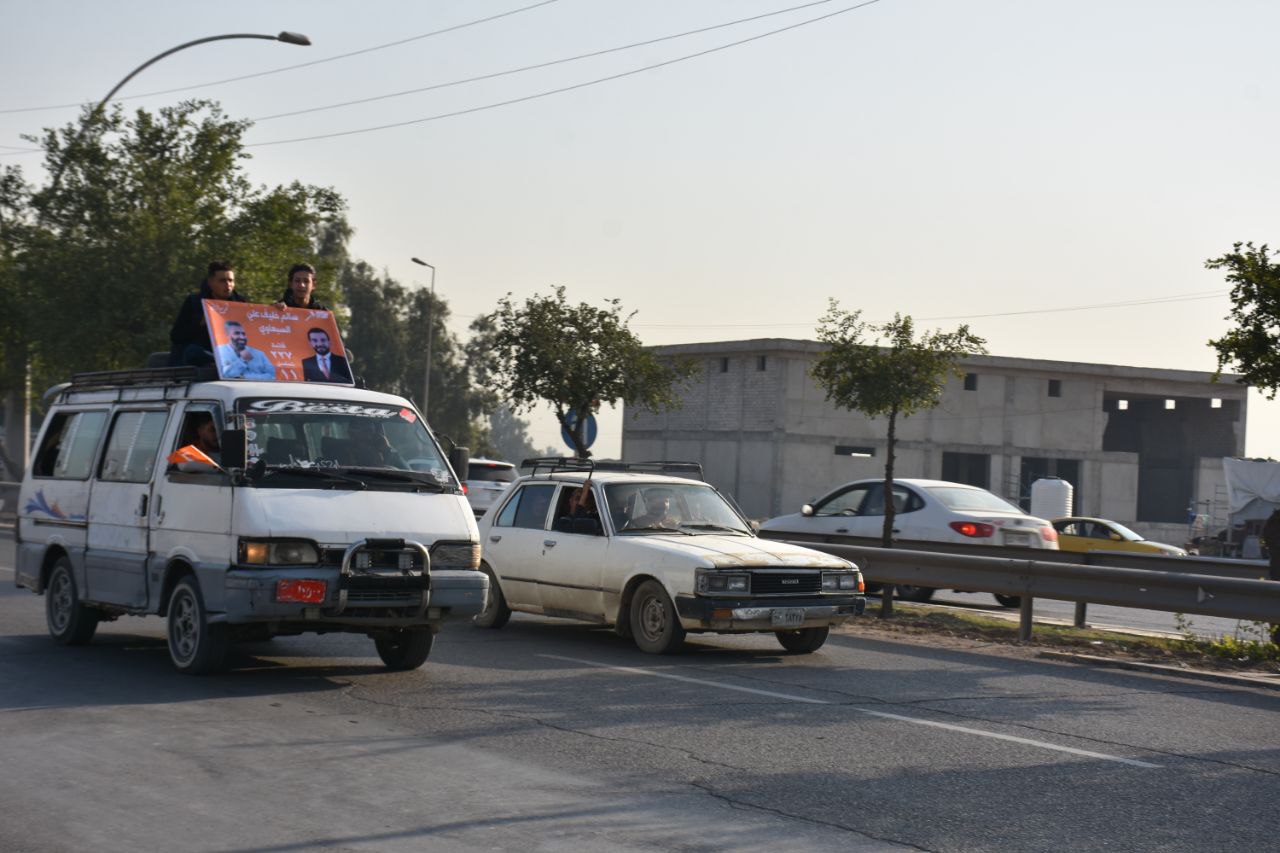
Alazim Alliance
The Azim Alliance was formed mainly by the Civil Hazim Party and the National Mass Party, which were headed by two Iraqi representatives, Muhammad Nouri Abd and Ahmed al-Jubouri (Abu Mazen).
This alliance is one of the strong alliances in Nineveh and competes with Sunni forces to win the votes of Sunni Arabs in the governorate.
The most prominent parties participating in the elections outside the framework of alliances are the Sovereignty Party, the Nineveh Party for Its People, the National Renewal Party, and the New Iraq Gathering.
Sovereignty
Khamis Al-Khanjar heads the Sovereignty Alliance. Al-Khanjar's chances rise as Al-Halbousi's weaken. In addition to mobilizing a portion of the Sunni votes in several Iraqi governorates, he also has great financial capabilities.
The emergence of Al-Jubouri as a new force
Najim al-Jubouri is considered a new figure entering the race for the Nineveh Council elections. Al-Jubouri said after submitting his resignation from the position of Governor of Nineveh a week ago to the Iraqi Premiere, “We were raised to respect and obey the system and the law, and given the failure to complete the procedures to lift my ablation due to the failure to vote in Parliament on that, I am asking your Excellency to accept my resignation.”
Al-Jubouri is wanted under the Accountability and Justice Law to uproot members of the dissolved Baath Party from the security and administrative institutions of the Iraqi government. They are being investigated on charges of “affiliation to the Baath Party,” chaired by Saddam Hussein.
However, in mid-October, the Prime Minister sent a recommendation to Parliament to approve Najm Al-Jubouri’s request to exclude him from the accountability and justice procedures.
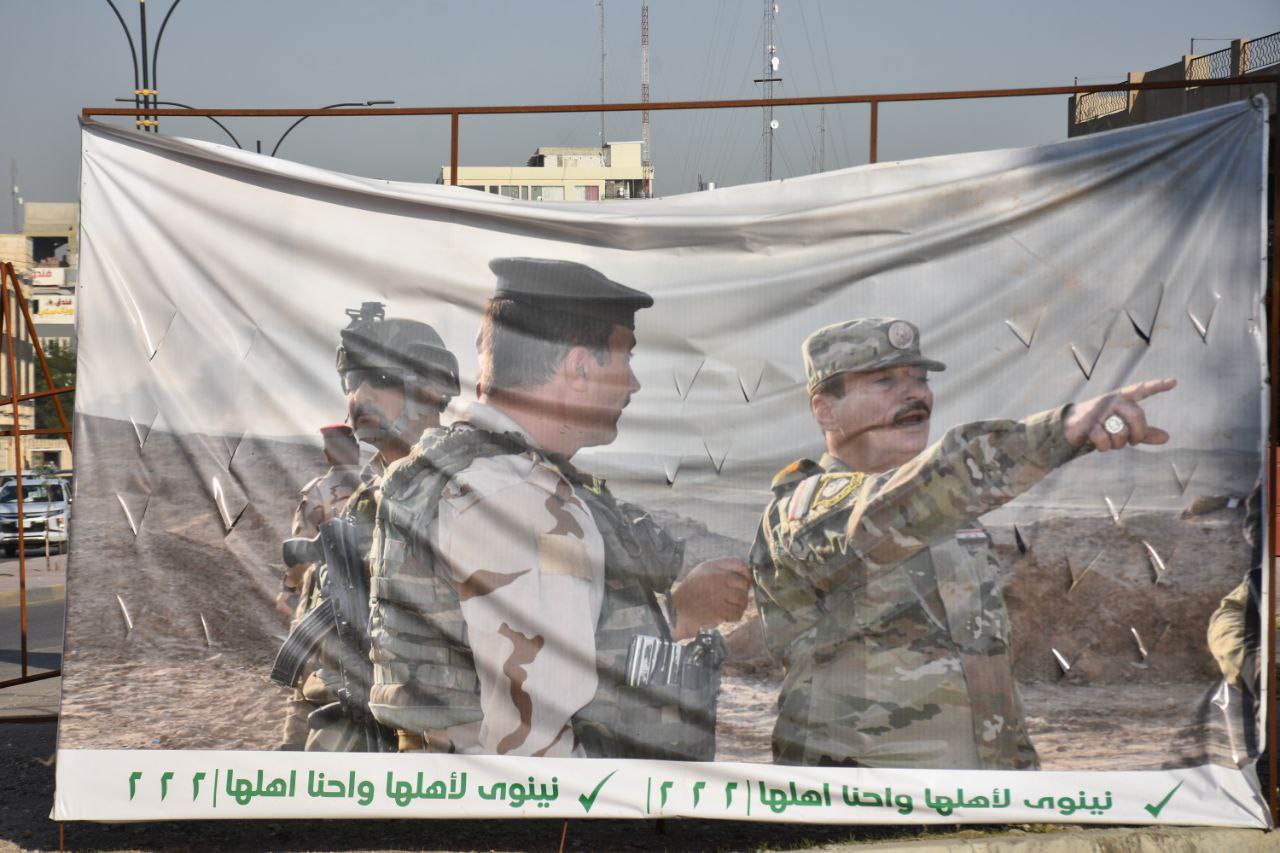
The Iraqi Parliament has not yet expressed its approval of the request, and as a result, Al-Jubouri submitted his resignation to the Prime Minister.
Four years ago, specifically on November 24, 2019, when Al-Jubouri was commander of the Joint Operations Command in Nineveh, he was elected governor of Nineveh, and in these elections, he enters the competition with a list of Nineveh for its People, which includes 52 candidates.
There are two opportunities for Al-Jubouri to win seats in the Provincial Council. The first is for the role he played in reclaiming Nineveh from the grip of ISIS and rebuilding Mosul and Nineveh in general after the destruction that befell it.
His second opportunity relates to his leadership of a new force on the scene that actively operates among locals for years, but his weakness is represented by the fact that many are still dissatisfied with the level of services, in addition to the accusation of “belonging to the Baath Party,” which is not yet clear how it will affect his chances.
The National Renewal Party is one of the other forces in the election arena. The party is headed by MP Falah Zidan, and its chances of winning seats are unclear.
Al-Hadbaa National Alliance: An Umbrella for Shiite Fractions
Alhadba National Alliance is a strong alliance in the Nineveh Governorate Council elections that includes some Shiite parties that are looking forward for the first time after 2014 to play a role in the local government of Nineveh.
The coalition includes Shiite forces that are currently leading the Iraqi government, most notably the State of Law headed by Nouri al-Maliki and the Badr Organization headed by Hadi al-Amiri.
The Safwa (Elite) Alliance forms another part of the Al-Hadbaa Alliance, and Sadiqoun, headed by Khidr Ali, and Irada, headed by former MP Hanan Al-Fatlawi, participate in the Safwa National Alliance.
Other movements and forces affiliated with the Shiite armed factions participate within the framework of the Al-Hadba National Alliance.
Al-Hadbaa's weak point is that the vast majority in Nineveh Governorate are Sunnis, and it is difficult to win Sunni votes, but their strength is the presence of forces affiliated with the pro-Iran paramilitary of the Popular Mobilization Forces PMF outside the center of the governorate, in addition to the religious and national minorities who have formed armed forces within the framework of the PMF and have mutual interests
Shiite-Sunni alliance
The National Contract (Aqid) Alliance is perhaps the strangest in the governorate, as it was formed by the union of several Shiite and Sunni forces.
The National Contract consists of three main parties: the Ataa Movement, the Iraqi Fortitude Party, and the Iraqi Islamic Party.
The Attaa Movement was founded in 2017, headed by Faleh Al-Fayyad, head of the General Authority of the PMF, but Al-Fayyad suspended his duties as head of the movement in 2022 and Khaled Kiban, a close associate of Al-Fayyad, was appointed in his place.
Some believe that al-Fayyad indirectly manages and directs the movement.
The movement places its hopes on the votes of Shiite voters and the armed forces affiliated with the PMF, but still, the Shiite voters constitute a small percentage of Nineveh voters.
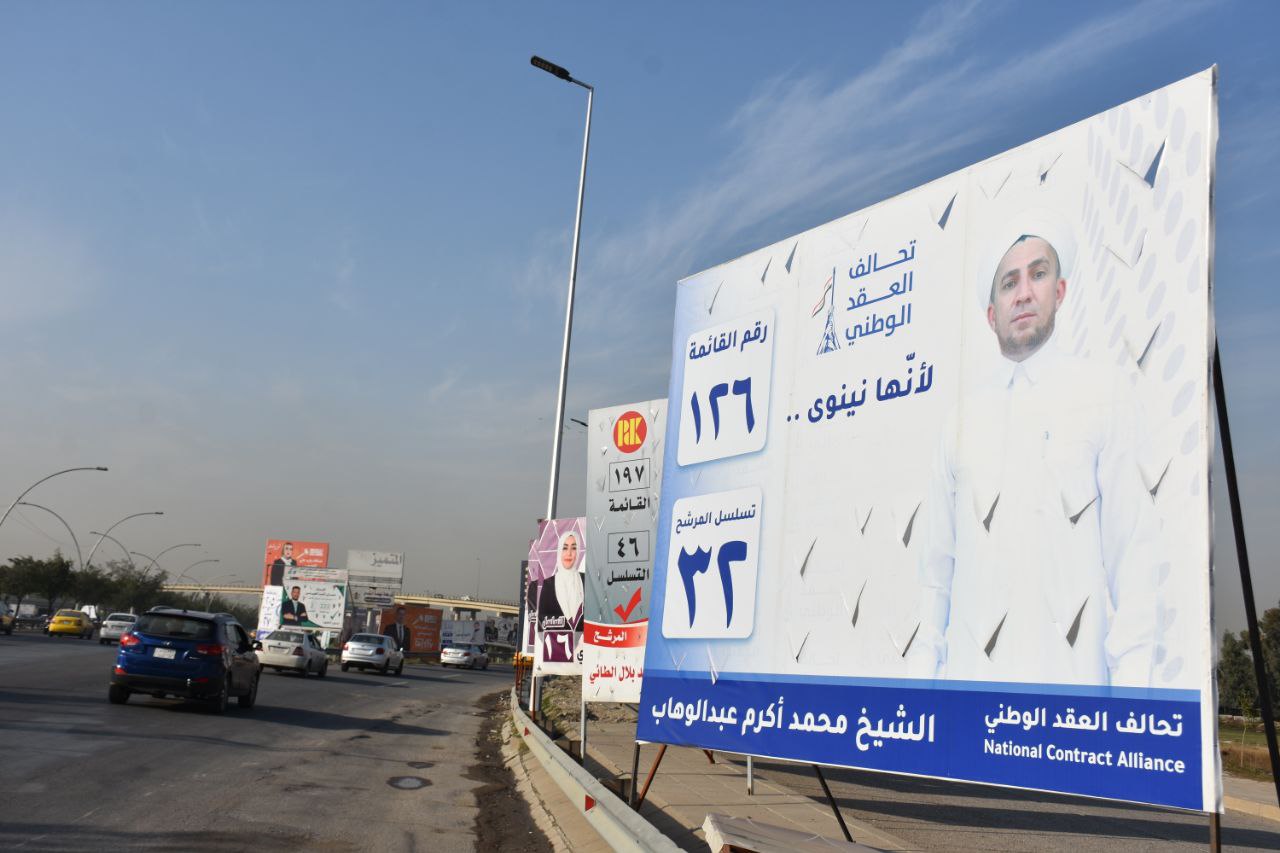
To deal with its weakness, the Ataa movement chose two Sunni forces as main components of the National Contract Alliance, one of which is the Iraqi Fortitude Party, headed by MP Abdul Rahim Al-Shammari and participating with nine candidates in the coalition.
Al-Shammari has been a member of the Iraqi Parliament for two consecutive terms and was a member of the Nineveh Governorate Council for two terms, before which he was the District Commissioner of Al-Baaj District from 2005 to 2009.
The Iraqi Islamic Party is the third party in the National Contract Alliance. The Islamic Party is one of the Sunni parties that is losing its popular base year after year, and it participates in the coalition with one candidate.
Division within lists and other alliances
Most Arab candidates participate within the framework of other ethnic and religious parties and alliances, including the Nineveh People’s Union Alliance, the National Identity Party, and the Kurdistan Democratic Party KDP.
The Alliance of the People of Nineveh was formed mainly from the Patriotic Union of Kurdistan PUJ, headed by Bafel Talabani, in addition to the National Al-Rifa Party, headed by Dildar Zebari, the first candidate on the list.
Several Arab candidates ran for the coalition, but it seems that their chances of winning are weak. One of the most prominent reasons is that the majority of the coalition’s candidates are Kurds and they have not gathered a sufficient number of votes in the previous elections.
The National Identity List is headed by the Secretary-General of the Babylon Movement, Rayan Al-Kildani. The majority of the list's candidates are Arabs belonging to the clans and tribes of the Nineveh Governorate.
The Babylon Movement is also competing with a single candidate to win the Christian quota seat.
The Kurdistan Democratic Party KDP is another force that fielded several Arab candidates, and it is not clear whether they will win seats or whether voters’ votes will go to the Kurdish candidates.

